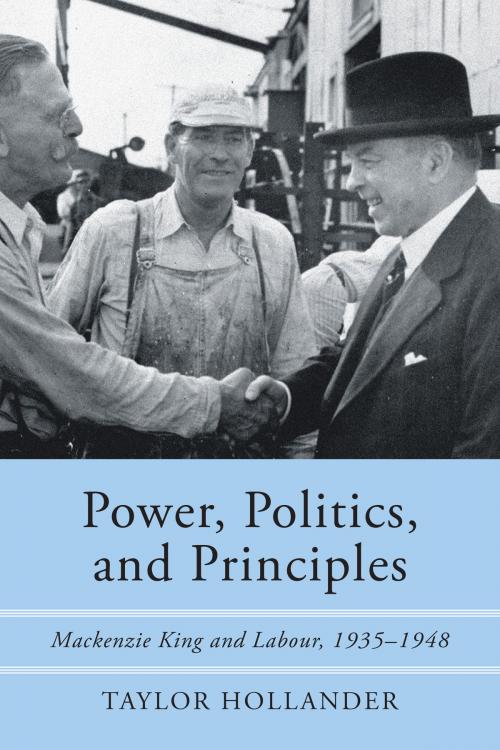Power, Politics, and Principles
Mackenzie King and Labour, 1935-1948
Nonfiction, Reference & Language, Law, Legal History, History, Americas, Canada| Author: | Taylor Hollander | ISBN: | 9781487515140 |
| Publisher: | University of Toronto Press, Scholarly Publishing Division | Publication: | June 12, 2018 |
| Imprint: | Language: | English |
| Author: | Taylor Hollander |
| ISBN: | 9781487515140 |
| Publisher: | University of Toronto Press, Scholarly Publishing Division |
| Publication: | June 12, 2018 |
| Imprint: | |
| Language: | English |
Set against the backdrop of the U.S. experience, Power, Politics, and Principles uses a transnational perspective to understand the passage and long-term implications of a pivotal labour law in Canada. Utilizing a wide array of primary materials and secondary sources, Hollander gets to the root of the policy-making process, revealing how the making of P.C. 1003 in 1944, a wartime order that forced employers to the collective bargaining table, involved real people with conflicting personalities and competing agendas.
Each chapter of Power, Politics, and Principles begins with a quasi-fictional vignette to help the reader visualize historical context. Hollander pays particular attention to the central role that Mackenzie King played in the creation of P.C. 1003. Although most scholars describe the Prime Minister’s approach to policy decisions as calculating and opportunistic, Power, Politics, and Principles argues that Mackenzie King’s adherence to moderate principles resulted in a less hostile legal environment in Canada for workers and their unions in the long run, than a more far-reaching collective bargaining law in the United States.
Set against the backdrop of the U.S. experience, Power, Politics, and Principles uses a transnational perspective to understand the passage and long-term implications of a pivotal labour law in Canada. Utilizing a wide array of primary materials and secondary sources, Hollander gets to the root of the policy-making process, revealing how the making of P.C. 1003 in 1944, a wartime order that forced employers to the collective bargaining table, involved real people with conflicting personalities and competing agendas.
Each chapter of Power, Politics, and Principles begins with a quasi-fictional vignette to help the reader visualize historical context. Hollander pays particular attention to the central role that Mackenzie King played in the creation of P.C. 1003. Although most scholars describe the Prime Minister’s approach to policy decisions as calculating and opportunistic, Power, Politics, and Principles argues that Mackenzie King’s adherence to moderate principles resulted in a less hostile legal environment in Canada for workers and their unions in the long run, than a more far-reaching collective bargaining law in the United States.















